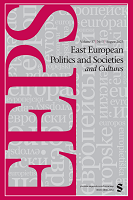Economic Strain in Post-Communist Countries and the Rest of Europe: Attitudes Towards the Unemployed and the Old
Economic Strain in Post-Communist Countries and the Rest of Europe: Attitudes Towards the Unemployed and the Old
Author(s): Kristyna BasnaSubject(s): Political history, Social history, Labor relations, Social development, Social Theory, Gerontology, Economic development, Post-Communist Transformation, Socio-Economic Research
Published by: SAGE Publications Ltd
Keywords: welfare; post-communist; multilevel; economic strain;
Summary/Abstract: This paper investigates attitudes towards the welfare state measured as government responsibility towards the standard of living of the unemployed and the old. The article focuses on the differences between post-communist countries and the rest of Europe, contextualised using the self-interest theory, specifically economic strain. Data on thirty one European countries gleaned from the European Social Survey collected in 2008 and 2016 are analysed using multilevel methods. The findings show that even though citizens in post-communist countries are purportedly more in favour of government intervention in regard to the welfare state, perceptible differences emerge based on individual characteristics, namely economic strain, combined with whether the respondent lives in a post-communist country. The cross-national differences in welfare support between post-communist countries and the rest of Europe are largely driven by differences in economic strain, with citizens in post-communist countries that struggle financially exhibiting higher support for welfare state provisions in comparison to their peers in countries without a communist legacy.
Journal: East European Politics and Societies
- Issue Year: 37/2023
- Issue No: 03
- Page Range: 1110-1129
- Page Count: 20
- Language: English
- Content File-PDF

